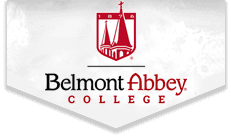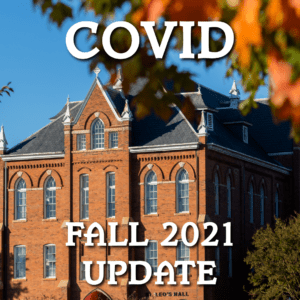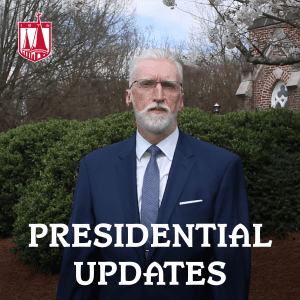August 27th: Update from Dr. Thierfelder
Watch the latest message from the President of Belmont Abbey College, Dr. Bill Thierfelder.
COVID Update on August 20th, 2021
Dear Belmont Abbey College Community,
Having received a number of questions regarding COVID-19 protocols, I wanted to take a moment to ensure our community is well informed and adhering to the procedures designed to keep our campus operating and safe. As a reminder, any changes to the policies below will be communicated to our college community on the coronavirus update page.
Let me first say that our policies and approach are grounded in a deep desire to continue in-person classes and activities and to support our students as much as possible. Our community is best and strongest when we all pray and work together. To that end:
- We continue to provide healthcare management through our trained nursing staff and Wellness Center. The Wellness Center will evaluate and test students for COVID as needed. Additionally, Wellness Center staff follow up regularly with students who test positive.
- We test all of our “in-season” student-athletes three times each week. “Out-of-season” student-athletes are tested bi-weekly on a randomized basis.
- In the event of a positive case on our campus, trained staff members conduct contact tracing for exposure and possible quarantine of others.
- We are NOT requiring our students and employees to be vaccinated; however, we have instituted an indoor mask mandate, which includes classroom settings and all other indoor gatherings. This masking “prevents” contact exposure to a positive case, thus, no individual who is masked indoors is required to quarantine as per County guidance.
- Indoor masking is required for both vaccinated and unvaccinated individuals.
- The College will provide masks to students (if needed).
- Students who are symptomatic are asked to contact the Wellness Center for consultation and testing (if needed). Symptomatic students who visit the Wellness Center are given an antigen test (provided by Belmont Abbey College), which normally yields results within 15 minutes.
- For after-hours care (evenings and weekends), students can visit CaroMont Urgent Care in Belmont for testing and evaluation. Students can find more information about after-hour facilities through our Wellness Center and website.
- A team of COVID ambassadors is being assembled to help communicate and support students in isolation and quarantine.
Let me go a bit further and convey to you our protocols regarding positive tests and exposure to positive cases.
In the event of a positive test result:
- All information is communicated directly from the College to the student.
- A communication/contact is made directly with the student regarding the positive test and a follow-up communication is made to facilitate further actions including isolation lodging and academic needs.
- Students are required to isolate off-campus for ten (10) days from the onset of symptoms or notification of a positive test (whichever occurs first).
- Students are encouraged to return home for the duration of the isolation period.
- In the event that a student is not able to return home, the College will facilitate a room reservation at a nearby hotel and provide transportation (if needed).
- Food service will not be provided by the College at the hotel. However, the College will provide contact information for local food delivery providers.
- The expense of the hotel, including food, will be the responsibility of the student. In the event of financial hardship, the College will subsidize the expenses of isolation.
- Professors are notified of a student’s isolation status. Professors and the isolated student must communicate with one another so that the student can maintain satisfactory academic progress. In addition to regular communication with one another, various modes of instruction may be used such as emails, Zoom sessions, recorded classes, or individual meetings.
- Students in isolation are contacted regularly by a member of the Wellness Center to determine their health status and individual needs.
- Students may return to campus upon completion of the 10-day isolation period if cleared by the Wellness Center.
In case of exposure to a positive case as determined by contact tracing, the following guidelines apply:
- Masked individuals (when exposed to a positive case) will NOT need to quarantine.
- Individuals who had a positive test within the last 90 days (or consistent with current County recommendations) will NOT need to quarantine.
- Vaccinated persons will NOT need to quarantine.
- Students who are unvaccinated and unmasked at the time of positive contact, WILL need to quarantine for 14 days from the last date of exposure; subsequent testing will NOT impact the duration of the quarantine period.
In the event contact tracing requires a student to be quarantined as the result of exposure to a positive case:
- A communication/contact is made directly with the student regarding the exposure and the need to quarantine.
- Residential students who are quarantined may remain on campus or return home.
- Professors are notified of a student’s quarantine status. Professors and the quarantined student must communicate with one another so that the student can maintain satisfactory academic progress. In addition to regular communication with one another, various modes of instruction may be used such as emails, Zoom sessions, recorded classes, or individual meetings.
- Email communications are made directly with quarantined residential students regarding meals/food service. An online meal ordering process is in place for students to order daily meals.
- Students in quarantine receive regular contact to assess their needs.
- Students in quarantine are provided with two daily periods of outdoor exercise.
- Students may return to classes and other campus activities after 14 days from the last exposure and upon completion of the quarantine clearance form (emailed to the student on the last day of quarantine).
- Subsequent testing does NOT impact the quarantine period.
We continue to work closely with our CaroMont Health partners and the Gaston County Health Department to monitor the ever-changing landscape of Coronavirus and its impact on the College and surrounding communities.
I greatly appreciate your ongoing support and I am confident that by the grace of God and our cooperation with it, we will, together, overcome the many challenges of the Coronavirus. You can be assured of my continuing prayers for you and your family.
God bless,

Dr. William K. Thierfelder
President





